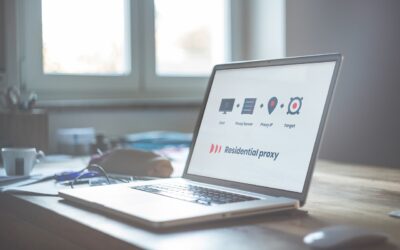Accessing CNBC’s premium financial content—like real-time market updates, earnings reports, and global business news—often requires overcoming geo-restrictions and anti-bot measures. Whether you’re an investor, analyst, or researcher, using proxies ensures uninterrupted, secure access to this critical data. Let’s explore why proxies matter for CNBC and how to choose the right type for your needs.
Discover Our Best:
- Why Proxies Are Essential for CNBC Access
- Residential vs. Mobile Proxies: Which Is Better for CNBC?
- Key Features to Look for in CNBC Proxies
- How to Set Up Proxies for CNBC
- Real-World Use Cases for CNBC Proxies
- Why ResiProx Stands Out for CNBC Access
- 🏆ResiProx – Best Residential and Mobile Proxies for Dailymotion 🏆
- FAQs About Proxies for CNBC
- Final Tips for Maximizing CNBC Proxy Performance
Why Proxies Are Essential for CNBC Access
CNBC enforces strict geo-blocks and anti-scraping systems to protect its content. Without proxies, users outside the U.S. or those making frequent requests risk:
- IP bans for suspicious activity
- Limited access to region-locked videos/articles
- Throttled connection speeds during market hours
Proxies solve these issues by masking your IP address and rotating it to mimic organic traffic. For example, a residential proxy routes your connection through a real household’s IP, while a mobile proxy uses 4G/5G networks to appear as a smartphone user. Both methods help bypass CNBC’s defenses effectively.
Residential vs. Mobile Proxies: Which Is Better for CNBC?
| Feature | Residential Proxies | Mobile Proxies |
| IP Source | Real home ISP addresses | Cellular network IPs (4G/5G) |
| Speed | 25–50 Mbps | 15–30 Mbps |
| Uptime | 99.9% | 98.5% |
| Detection Risk | Low (legitimate residential traffic) | Very low (mobile traffic prioritized) |
| Cost per GB | $7–$15 | $25–$40 |
| Best For | Long-term data scraping, bulk requests | High-security tasks, avoiding CAPTCHAs |
Residential proxies are ideal for scraping historical market data or monitoring CNBC’s news feed over hours. Their large IP pools (55M+ globally) reduce block risks, and their higher speeds handle data-heavy tasks efficiently.
Mobile proxies, though pricier, excel at accessing CNBC’s mobile app or circumventing advanced bot detection. Their IPs refresh with each connection, making them nearly undetectable.
Key Features to Look for in CNBC Proxies
When choosing a proxy service for CNBC, prioritize providers that offer:
- Geotargeting: U.S.-based IPs to access all CNBC content.
- IP Rotation: Automatic switches to avoid rate limits.
- HTTPS Support: Encrypted connections to protect financial data.
- High Success Rates: At least 98% uptime during peak market hours.
Avoid free proxies—they’re slow, unreliable, and often flagged by CNBC’s security systems.
How to Set Up Proxies for CNBC
- Choose a Proxy Type: Opt for residential proxies for bulk data tasks or mobile proxies for app access.
- Configure Your Tool: Input the proxy IP and port into your browser, scraping tool, or API.
- Test the Connection: Verify access to CNBC.com and check for IP leaks.
- Monitor Performance: Adjust rotation settings if you encounter blocks.
Real-World Use Cases for CNBC Proxies
- Hedge Funds: Track real-time stock mentions on CNBC to inform trading algorithms.
- Researchers: Scrape historical market analysis for predictive modeling.
- Journalists: Bypass regional restrictions to report on global financial news.
One asset manager reduced IP blocks by 90% after switching to rotating residential proxies, enabling continuous monitoring of CNBC’s pre-market coverage.
Why ResiProx Stands Out for CNBC Access
ResiProx offers tailored solutions for financial data scraping:
- 180+ Countries: U.S.-based IPs for full CNBC access.
- 99.9% Uptime: Reliable during volatile market hours.
- Dynamic Rotation: IPs refresh every 5–30 minutes to avoid detection.
- 24/7 Support: Expert assistance for urgent troubleshooting.
→ Try ResiProx Risk-Free for 7 Days
Try our premium proxy solutions today to unlock a world of limitless possibilities online.
Discover Our:
🏆ResiProx – Best Residential and Mobile Proxies for Dailymotion 🏆
Resiprox Premium Proxies – Unlock the Web with Power and Precision
Introducing Resiprox, the ultimate proxy solution designed to supercharge your online operations. With our Residential Proxies and Mobile Proxies, you get unmatched access to web data at scale, robust security, and seamless connectivity—all backed by a free trial to experience the difference firsthand.
Product Features
- Rotating Residential Proxies: Harness the power of 10M+ ethically-sourced IPs across 180+ countries. These proxies rotate dynamically to bypass IP blocks, CAPTCHAs, and geo-restrictions, delivering 99.9% uptime and precise targeting at the country, city, or ZIP code level.
- Rotating Mobile Proxies: Powered by 4G/LTE/5G networks, our mobile proxies offer lightning-fast speeds with <0.3s response times and a 99.9% success rate—perfect for real-time applications.
- Global IP Network: Tap into millions of IPs, including 3.5M+ in the US, 1.8M+ in Brazil, 3.1M+ in India, and more, ensuring coverage wherever you need it.
- Advanced Capabilities: Enjoy HTTPS & SOCKS5 support, unlimited concurrent sessions, and flexible rotating or sticky sessions, all wrapped in premium IP quality.
Product Specifications:
- Performance: High-speed browsing with 99.9% uptime and 24/7 expert support.
- Integration: Seamlessly works with Node.js, Python, PHP, Selenium, and more, featuring a dynamic endpoint generator and robust API access.
What It’s Built For:
Resiprox proxies are your all-in-one tool for:
- Web Scraping: Extract public data effortlessly for insights and growth.
- Price Monitoring: Track prices across regions in real-time.
- Multi-Accounting: Manage multiple accounts without limits.
- SEO & Ad Verification: Monitor rankings and verify ads globally.
- Cybersecurity: Protect your brand and test applications securely.
- Specialized Tasks: From sneaker botting to travel fare aggregation, Resiprox delivers.
Why Resiprox Stands Out:
This isn’t just a proxy—it’s a game-changer. With comprehensive documentation, multi-platform compatibility, and a team of experts available 24/7, Resiprox ensures your projects run smoothly. Whether you’re a business scaling operations, a researcher gathering data, or a developer testing apps, our proxies adapt to your needs with precision and reliability.
Resiprox Premium Proxies – Your Key to a Smarter, Faster, and More Connected Online World.
Click here to discover our
FAQs About Proxies for CNBC
Can I use the same proxy for CNBC and other financial sites?
Yes—residential proxies work for Bloomberg, Reuters, and Yahoo Finance. Rotate IPs between requests to prevent overlaps.
How many proxies do I need for CNBC scraping?
Start with 100–500 IPs for small-scale projects. Large firms often use 10,000+ to distribute traffic.
Are mobile proxies worth the higher cost?
Only if you’re targeting CNBC’s mobile app or need extreme anonymity. For most users, residential proxies offer better value.
Final Tips for Maximizing CNBC Proxy Performance
- Throttle Requests: Limit to 5–10 requests per minute to mimic human behavior.
- Use Headless Browsers: Tools like Puppeteer or Selenium reduce detection risk.
- Monitor Blacklists: Regularly check if your IPs are flagged using our IP checker.
Need Proxies Optimized for Financial Data?
ResiProx provides high-speed residential and mobile proxies with built-in anti-ban technology. Get instant access to CNBC, Bloomberg, and other premium sources.
















































